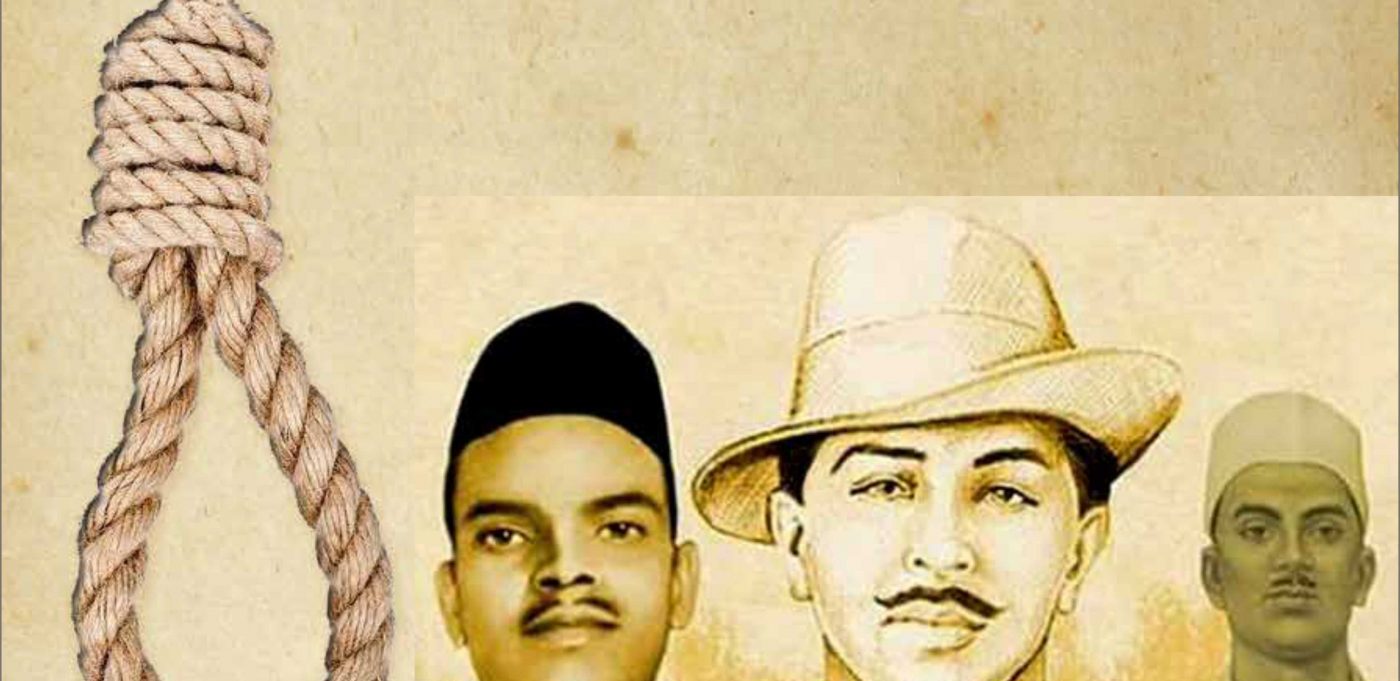AMEY JOSHI
In an age when most of the youngsters would be concerned about their education, career or starting a family, these three individuals had already dedicated their lives towards the freedom movement of the country. 23rd March 1931 was the day when young revolutionaries, Bhagat Singh (aged 23), Sukhdev Thapar (aged 23) and Shivaram Rajguru (aged 22) were hanged by the British Government.
These young freedom fighters were a part of Hindustan Republican Association which was later renamed as Hindustan Socialist Republican Association which was an organisation of many such young revolutionaries who came together to fight against the injustice.
Bhagat Singh had joined Hindustan Republican Association in 1923-24 at Kanpur, which was led by revolutionaries Ram Prasad Bismil, Yogesh Chaterjee, Ashfaq Ullah Khan, and Shachinder Sanyal. He took part in all the actions of that organisation right till mid- 1928. Then after the arrest of most of the leading figures of HRA, youngsters like Bhagat Singh, Sukhdev, Shiv Verma, B.K. Dutt, B.K. Sinha and others met at Delhi on 8th-9th Sept 1928 to reorganise themselves as Hindustan Socialist Republican Association.
Many believe that, Bhagat Singh did not just fight against the British, but he also fought against inequality prevailing at that time. His act of throwing bomb in the Central Assembly to disrupt the passing of Trade Dispute Bill & Public safety Bill, which would have suppressed the rights of the workers, indicates the same. On April 8, 1924, Baghat Singh and fellow revolutionary B.K. Dutt hurled two bombs on to the floor of the Central Delhi Hall in New Delhi while the Central Legislative Assembly was in the session. The bombs were thrown into empty benches so as not to cause any harm to anyone.
Following the explosions, in which no one was hurt, Singh and Dutt started showering leaflets which became famous as “The Red Pamphlet”. The pamphlet began with a passage which was to become legendary in the Indian revolutionary struggle: “It takes a loud voice to make the deaf hear.” Singh and Dutt ended the pamphlet with the words: “Long Live the Revolution!” “Inquilab Zindabad” which became one of the most enduring slogans of the Indian Independence Movement.
It later on became the war cry for workers’ and peasants’ and trade union movements in India. The actions of the young revolutionaries was soundly condemned by followers of Gandhi, but Bhagat Singh was delighted to have a stage to promote his cause.
Socialism and secularism were perhaps Singh’s most important contributions to the Indian freedom struggle. It was particularly contextual as Singh understood that British imperialism thrived on divide and rule, by fomenting tensions between Hindus and Muslims. Bhagat Singh shaved his beard, forbidden by his religion, as he did not want to be confined to a community. He saw British imperialism as a plague for all Indians, irrespective of their faith, caste and creed. And in more than one place, he talked about how the idea of colonialism and imperialism were antithetical to the notions of freedom. Singh’s ideology was, thus, not just confined to India. Profusely well-read and interested in debates and theatre workshops, there was an international perspective to his ideas.
During the Indian freedom struggle when most people followed the ideologies of very senior leaders, there was a group of young individuals who had a vision of their own. One of the key things what we learn from these youngsters is that one needs to put his own ideas forward. Imagine, if revolutionaries like Bhagat Singh and Chandra Shekhar Azad also followed the ideology of passive resistance, would their thoughts ever come in front? Apart from patriotism, believing in yourself and making your own way is something what these young revolutionaries taught us.
There were many other young revolutionaries like Bhagat Singh who sacrificed their youth and dedicated themselves for the freedom struggle of the country, but, till today our society is infected with the poison of differences related to, caste, creed and religion, and now we also see people fighting over state and language. Sometimes we need to think, are their sacrifices betrayed?



























